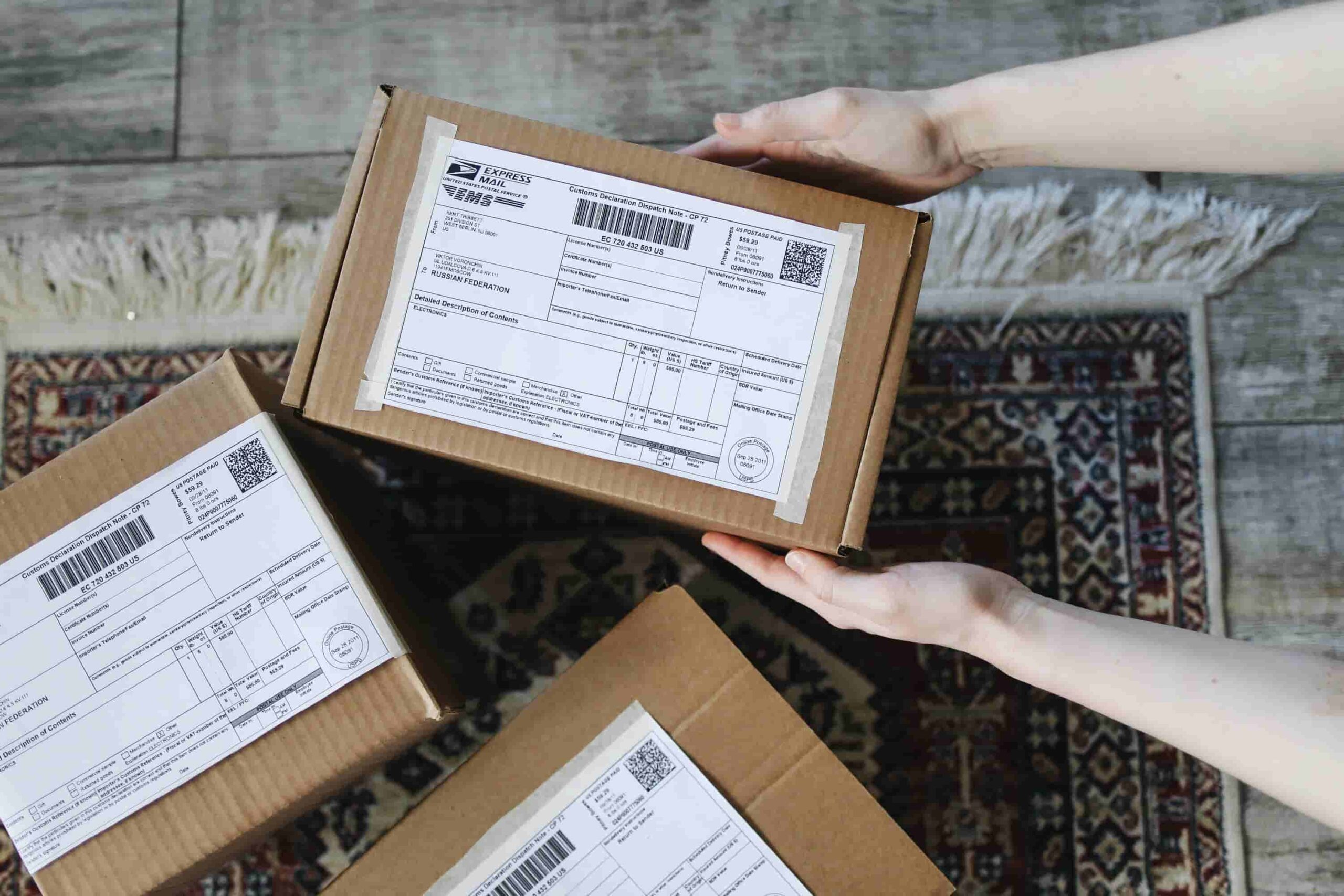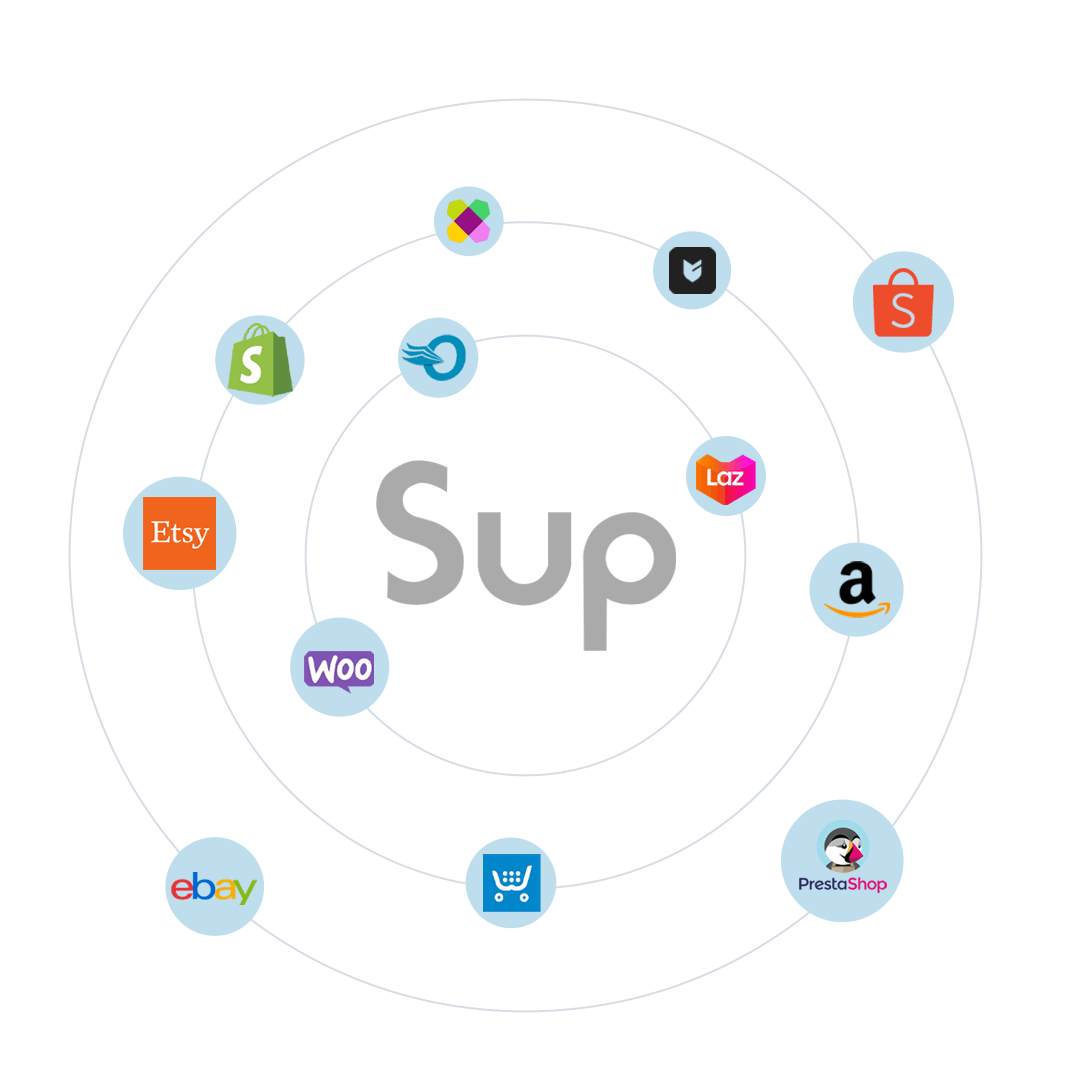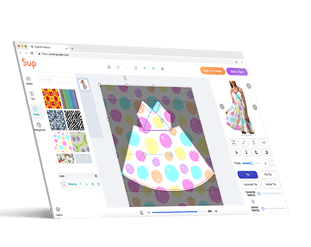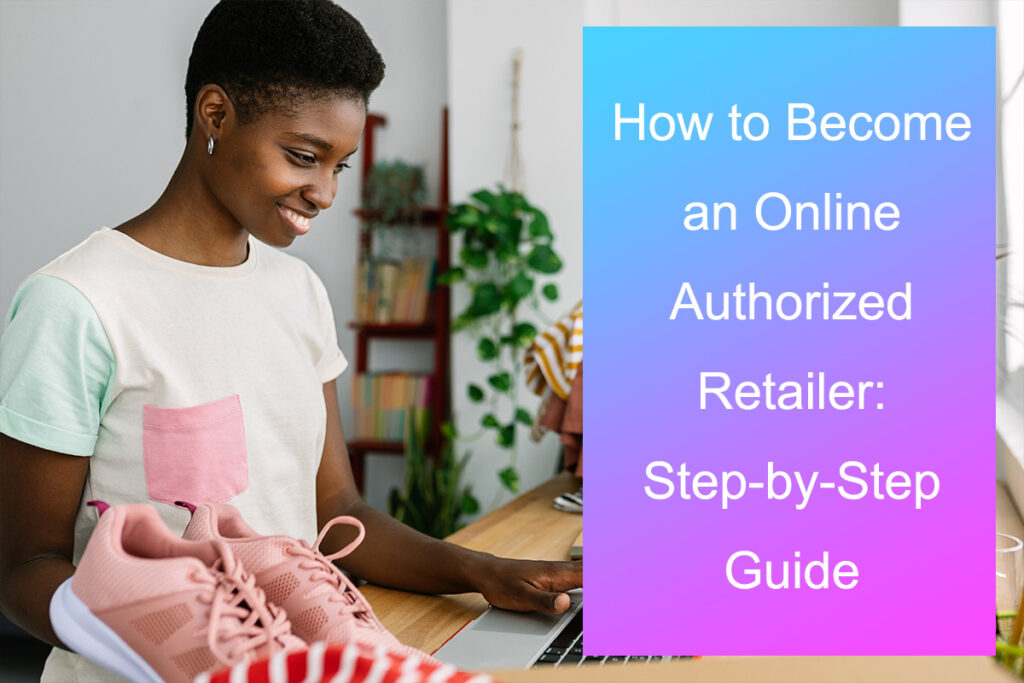What Is Private Label Dropshipping? How to Get Started
Do you dream of selling your own branded products but you don’t have a big capital? Then try private label dropshipping. Private label dropshipping is a dropshipping business model that allows you to dropship products that are customized based on your specifications.
In a study conducted by Baazarvoice, the demand for private label products has been on the rise. In fact, in the US alone, 64% of consumers have purchased private label products over the past few months. So, if you want to set your e-commerce store apart in the crowded market, build your own brand without burning a hole in your pocket and hop onto private label dropshipping.

What Is Private Label Dropshipping: Explained
Private label dropshipping simply means dropshipping a product that’s been made in accordance with your unique requirements. For example, you want to dropship your own brand of yoga mats, and you’ve found a reliable dropshipping manufacturer you can partner with. You provide them with your specifications for the yoga mats, including details like colors, thickness, dimensions, design, material type, brand logos, and custom packaging. Once your branded yoga mats are manufactured, you can start selling them through your e-commerce channels. When someone places an order, your dropshipping manufacturer will be the one to package and ship your product to your buyer.
However, following a private label dropshipping model requires you to meet a minimum order quantity—which is why a certain amount of capital is required. Your dropshipping manufacturer needs you to hand in a small investment so they can produce your custom products in advance. This helps ensure the timely delivery of your products when someone buys from your e-commerce store. Nevertheless, starting a private label dropshipping business is still relatively cheaper than wholesaling.
Another piece of information you need to know is that in private label dropshipping, your dropshipping manufacturer isn’t allowed to distribute your custom products to other dropshippers. This is because the specifications and designs you made are exclusive to your brand.
Steps to Get Started with Private Label Dropshipping
Getting started on private label dropshipping can be a lot more challenging than the traditional dropshipping model. But with the following guide, we’re hoping that you’ll have a smoother journey into private label dropshipping.
1. Find profitable private label products to dropship
Just like any other dropshipping model, the first step in getting started on private label dropshipping is finding profitable products to dropship. While almost all types of products can be sold, not all are equally profitable.
To help you select the right products for your business, you need to figure out a product niche you know and like that aligns with what your customers are seeking. When these two factors don’t align, you won’t be able to sell even a popular product because you’re not really that passionate about it. On the other hand, if you just pick a product that you like to sell, but there’s not enough demand for it, you won’t generate enough profit.
To be successful in private label dropshipping, conduct market research first. You can use tools like Google Trends to discover popular and trending products. You can also visit Amazon or eBay and take note of their bestsellers. Additionally, you can view what people usually ask or seek to Answer the Public.
If you want to know what kind of products usually do well on private label dropshipping, here are a few examples:
- Health supplements like magnesium, anti-anxiety supplements, probiotics, zinc, and B vitamins
- Beauty and skin care products like regular or whitening soaps, moisturizers, sunscreens, and shampoos
- Specialty and functional clothing like maternity dresses, baby onesies, hiking shorts, and gym outfit
- Souvenir and gift items like t-shirts, mugs, tote bags, water bottles, and phone cases
- Jewelry accessories like bracelets, rings, and necklaces
- Pet supplies like pet clothing, pet food, and grooming products

2. Choose a reliable private label dropshipping manufacturer
There are several dropshipping suppliers and manufacturers worldwide that you can collaborate with. When choosing a dropshipping supplier for your business, you can type the following search formulas on Google, Bing, or other search engines:
- private label dropshipping + product (Ex: private label dropshipping health supplements)
- private label dropshipping + product + location (Ex: private label dropshipping health supplements china)
- product + private label dropshipping (Ex: health supplements private label dropshipping)
- product + private label dropshipping + location (Ex: health supplements private label dropshipping china)
- product + for + private label dropshipping (Ex: health supplements for private label dropshipping)
- product + for + private label dropshipping + location (Ex: health supplements for private label dropshipping china)
With these search formulas, you can easily find dropshipping manufacturers. However, when selecting a supplier, consider the following factors:
- Reputation. What do their past customers say about them? Are there more people sharing about their positive experiences or is it the opposite?
- Minimum order quantity (MOQ). How much is their minimum order quantity? If you have a small capital, choose a supplier with a low MOQ.
- Turnaround time. What’s their usual turnaround time for product manufacturing? You need to pick a supplier with a fast turnaround time so there won’t be any delays in shipment.
- Return and refund policy. How do they handle returns and refunds? A good dropshipping supplier must have a clear return and refund policy to address any issues among consumers.
3. Design your product
Once you’ve found the best dropshipping supplier for your private label products, you can start designing your product and building your brand assets. To ensure your manufacturer produces exactly what you have in mind, provide them with clear product specifications. These may include the style, color, dimensions, material type, product weight, quality standards, finishing and texture, and functionality requirements of the product. After listing your product specifications, begin building your business’ brand assets like brand logos and custom packaging. Send all these details to your dropshipping manufacturer for confirmation and finalization.
When everything is settled, ask your supplier for the pricing and turnaround time for manufacturing your private label products. You can also request them to ship samples of the finished product for you to check. If you’re already satisfied with how your branded products turn out, you can notify your supplier to proceed with the batch production.
4. Pick and build your e-commerce platforms
Choosing the right platforms where to sell your products can greatly affect your business’ profitability. If you’re targeting the international market, make a seller account on Amazon, eBay, and Etsy. Meanwhile, if you’re only after Asian consumers, Shopee and Lazada would be your best pick. However, not because you have listed your private label products on big e-commerce platforms, you’ll immediately make sales.

To increase your product’s chances of getting in front of a large audience, optimize your product listings. Optimizing means enhancing your product’s presentation and copy so it can show up in the search results. Some ways to optimize your product listings include adding high-quality images, writing a keyword-rich product title and description, making the product description more readable by adding bullet points, integrating product demonstration videos, and showcasing customer reviews or video testimonials.
Aside from making a seller account on large e-commerce platforms, you can also build your own e-commerce website. Having one isn’t mandatory, especially if you have a tight budget. However, a website helps ensure sales keep coming in even if one of your seller accounts on e-commerce platforms is suspended, frozen, or worse, banned. These things happen even if you’re following all their rules. But with a website, you have full ownership and control over it.
5. Market your private label dropshipping business
There are more than 26 million e-commerce stores worldwide and most of them are dropshippers. So, imagine the competition. Simply listing your products on large e-commerce platforms and building a website won’t cut it. Customers won’t magically discover your e-commerce store. To make your private label products more visible online, you have to market your dropshipping business non-stop.
One of the best ways to promote your products is to utilize the power of social media. Get on popular social media platforms like Facebook, Instagram, or TikTok and talk about your brand. Create posts consistently, engage with your potential consumers, and invest in paid ads to reach more people fast.
As for increasing the visibility of your website on Google, you can hire search engine optimization (SEO) specialists. They’re digital professionals who help improve the ranking of your website so it can appear more on the search engine results page (SERP). The more your website shows up in search results, the more people will be able to find your e-commerce store.
Advantages of Private Label Dropshipping vs Traditional Dropshipping
The traditional dropshipping model requires zero to minimal cost since it doesn’t require a minimum order quantity. But in a sea of e-commerce competitors, private label dropshipping allows you to differentiate yourself from the competition and offer these other benefits:
1. You can charge more
Since private label products are customized and can only be sold in your e-commerce store, you can better position your product in the market and charge a higher price. However, in traditional dropshipping, you’re only able to add a small markup to the regular product price. If you go above the standard market rate, you may lose customers because no one likes to buy from an overpriced store. Plus, customers can just look for the same product in another store and purchase it at a lower cost.
2. You can market your products as premium
With your private label products’ unique selling points and features, you can easily advertise them as premium or limited editions. Branding increases your business value, luxury appeal, and exclusivity. Unlike in standard dropshipping, products are often seen as nothing special since they are mass-produced and can be purchased anywhere.
3. You can reduce your direct competition
With a signature brand image, your private label products won’t be easily comparable to other products because you designed them yourself. From their specifications to their custom packaging, your private label products aren’t the same as the products being sold by traditional dropshippers. Hence, minimizing direct competition.
4. You can encourage repeat purchases
Imprinting your private label products with a logo isn’t only for design. It also helps encourage repeat purchases. If you’re successful in developing your e-commerce brand, people will stay loyal to a business they’re already familiar with and buy from the same store repeatedly whenever they need it. In standard dropshipping, all products have the same look and quality, which is why people can just buy them from any store.

5. You can improve your business reputation
Developing your own brand helps improve the reputation of your business. If you have a well-established brand, you give an impression of professionalism and trustworthiness. Moreover, people know that branded products are often created by businesses that invest in quality and customer satisfaction.
Frequently Asked Questions
1. Is private label dropshipping profitable?
Private label dropshipping is a profitable business venture. If you’re able to design a product that meets your target customers’ needs and market your product strategically, you can make consistent sales.
2. Do you need capital in private label dropshipping?
A low upfront investment is usually needed to start a private label dropshipping business. It can range from $50-$500 depending on your agreement with your private label dropshipping supplier. The funds are needed so your manufacturer can proceed with the first batch of production.
3. Is private label dropshipping better than traditional dropshipping?
Both dropshipping models have their own merits. One of the advantages of traditional dropshipping is that it doesn’t usually require an upfront capital and minimum order quantity. It’s perfect for people who don’t have enough budget. Although private label dropshipping requires a small investment, you can charge a higher price for your products, position your products as premium, reduce your business’ direct competition, encourage repeat purchases, and improve your business reputation.
5. What is the difference between private label dropshipping and white label dropshipping?
Private label dropshipping shouldn’t be confused with white label dropshipping. In white label dropshipping, you’re also allowed to dropship products with your brand logo. However, the products used in white labels are only generic and mass-produced by your dropshipping supplier. This means they’re pre-manufactured and you can’t customize their specifications. Nevertheless, your supplier can still place your brand logo on the items and create custom packaging upon request. Moreover, your supplier can still offer these generic products to other sellers for rebranding.
Conclusion
Private label dropshipping is a wonderful business venture to explore. You can design your own branded products and you don’t have to worry about inventory, storage space, packaging, and shipment since you’re following a dropshipping model. But compared to the traditional and white label dropshipping models, private label dropshipping requires a bigger upfront investment. Still it’s low risk, cheaper, and more convenient than wholesaling.If you don’t have enough budget yet to try private label dropshipping, you can start having a feel first in traditional dropshipping or even white label dropshipping. Sup Dropshipping offers standard dropshipping solutions, as well as white label dropshipping services. Want to get started? Reach out to us today!
About the Author

Jack Han
Jack is a SEO manager and blog writer at Sup Dropshipping. He holds an MA in Linguistics and Education. He has over 10 years experience in E-commerce, and 5 years of experience in SEO. Jack is an enthusiast to share his recent knowledge learnt from peer experts in the industry.





Leave a Reply